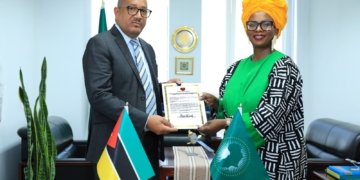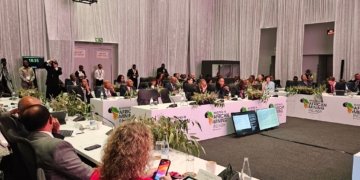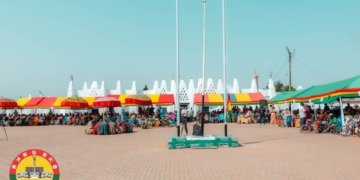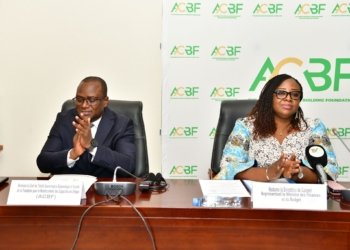ABIDJAN, Côte d’Ivoire (BG) —For thousands of women in West Africa, cashew farming is more than just a livelihood—it is a pathway to financial independence.
Yet, despite their vital contributions to the cashew value chain, many women struggle to gain recognition and access the resources needed to thrive.
Aiming to bridge this gap, the International Trade Centre (ITC), with support from the Korea International Cooperation Agency (KOICA), launched the SheTrades West Africa project.
Active in Côte d’Ivoire, Guinea, Liberia, and Sierra Leone, the initiative focuses on cashews and incorporates the shea and cassava value chains.
Breaking Barriers for Women Farmers
In Côte d’Ivoire, the world’s leading cashew producer, ITC has partnered with Olam Ivoire, a subsidiary of Olam Food Ingredients (ofi), to promote gender-sensitive training for extension staff.
ITC aims to ensure that female producers can access agricultural training and influence financial decisions within their households by equipping these professionals with the knowledge to support women farmers better.
“SheTrades West Africa’s work in Côte d’Ivoire includes producing gender-specific training materials on the cashew value chain,” ITC noted. “So far, 5,000 women farmers have benefited from these resources or participated in training.”
For Olam Ivoire, fostering inclusivity in cashew production is a strategic priority.
“As a responsible pioneer and leader in the cashew industry, our goal is to support the development of the sector in a sustainable way,” said Diomande Daouda, Cashew Sustainability Manager for Côte d’Ivoire at ofi.
“Throughout our sourcing networks and processing facilities, we support women through literacy classes, health awareness programmes, and professional development initiatives, designed to build confidence, motivation, and financial autonomy,” Daouda said.
The impact of such initiatives is tangible. An Ivorian woman farmer told ITC that the training had transformed her business and her family’s financial situation.
“Thanks to my cashew business, I can also take care of some expenditures in my house,” she said.
Expanding Opportunities in Sierra Leone
SheTrades West Africa is also impacting Sierra Leone, where ITC has partnered with cashew exporter Mel-O Africa to strengthen support for women farmers.
Training efforts focus on gender-specific challenges and Good Agricultural Practices (GAP), ensuring women have the tools to boost productivity and participate in decision-making processes.
“The G.A.P. training and the supply of cassava cuttings were very beneficial for me and my family because it helped me to solve most of my problems,” said Aminata Fornah, who chairs the cashew-growing community of Rorenka village.
“The replanted cassava cuttings will continue to benefit us in the coming years as I will keep replanting it yearly,” Fornah added.
A Vision for the Future
In both Côte d’Ivoire and Sierra Leone, SheTrades West Africa’s approach is informed by feedback from farmers and stakeholders and lessons learned from the COVID-19 pandemic.
The goal is for participating companies and business support organizations to continue integrating inclusive practices.
In Côte d’Ivoire, the National Agency for Support to Rural Development (ANADER) has committed to training 3,000 cashew producers—including women and men alongside their spouses—to create a more gender-inclusive industry.
Meanwhile, women farmers who have received training are passing on their knowledge to others, ensuring that more female producers can expand their businesses, support their communities, and invest in their children’s education.
A Changing Economic Landscape
Côte d’Ivoire has long been a powerhouse in agricultural exports. The country remains the world’s leading cocoa producer and a major supplier of raw cashew nuts, oil, and processed goods.
Once known primarily as an exporter of raw cashew nuts—providing over 25% of the global supply—Côte d’Ivoire has significantly expanded its processing capabilities.
Over the past decade, processed cashew exports have surged from 9% to 30% of total production, according to the World Bank.
This economic transformation, driven partly by greater inclusivity in key value chains, highlights the region’s potential for sustainable and equitable growth.
Through initiatives like SheTrades West Africa, women farmers are gaining the tools to contribute more fully to this progress as agricultural producers and economic decision-makers in their communities.
Initially published by the International Trade Centre (ITC) and rewritten by Felix Tih, Bantu Gazette.






















